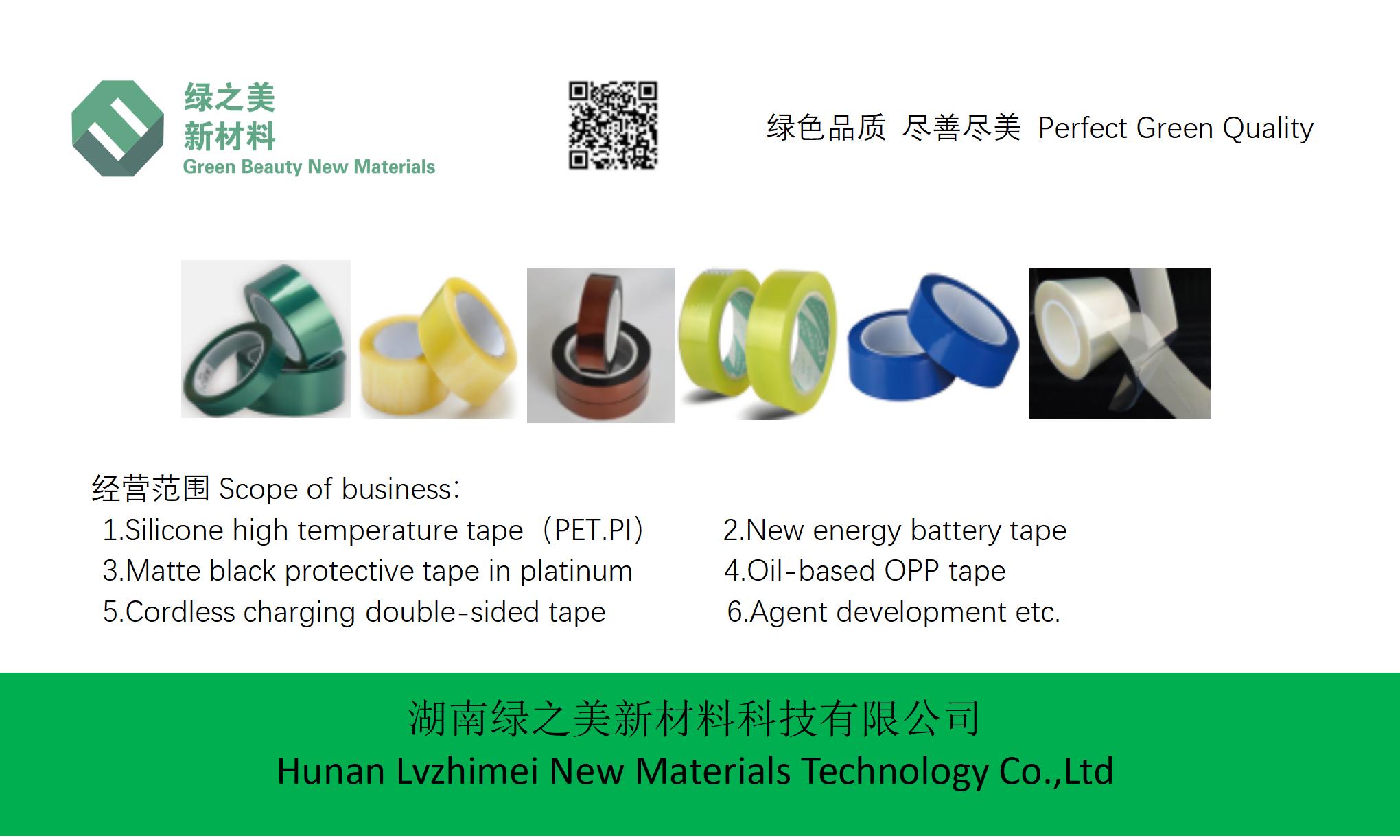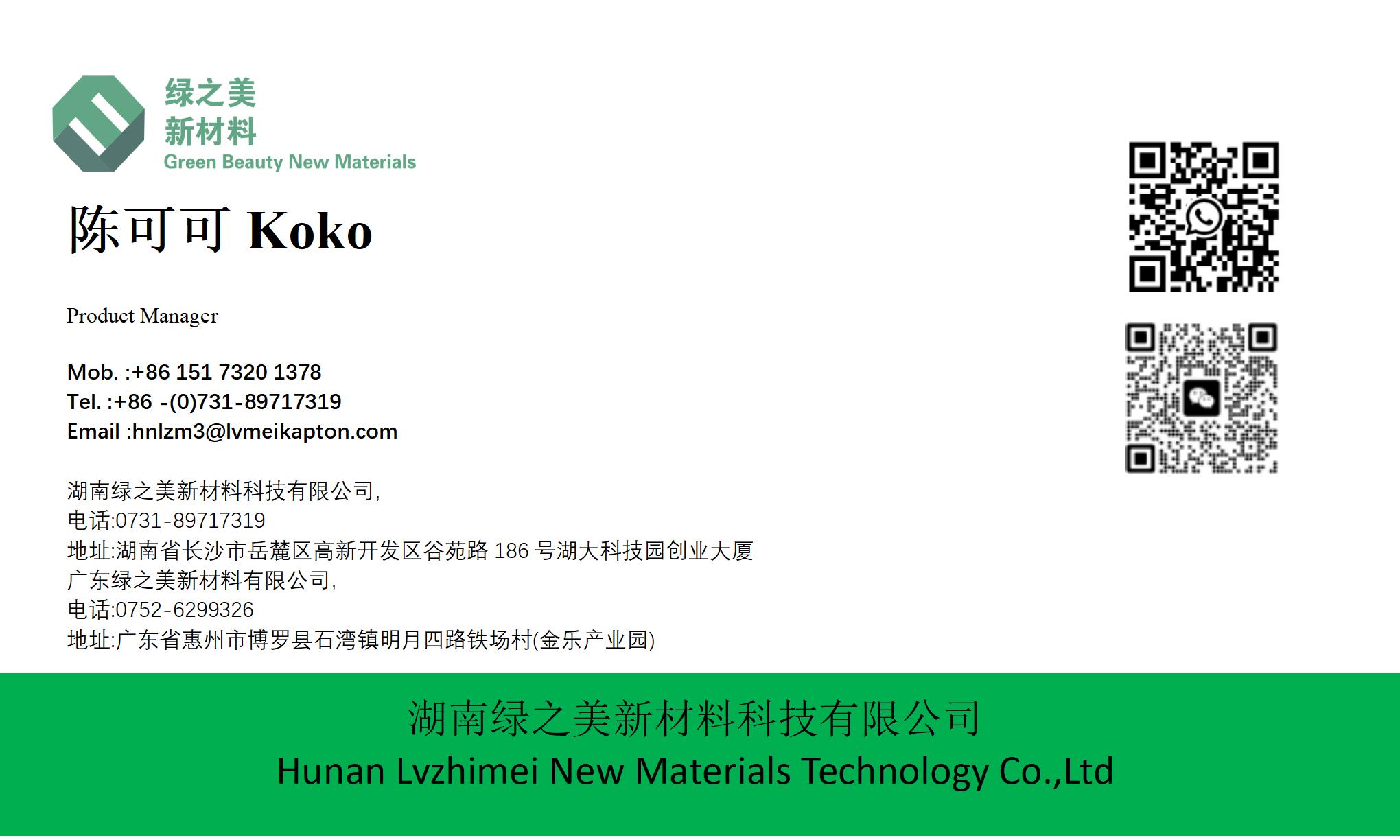hnlzm@lvmeikapton.com
+86 13787123465


Hunan Lvzhimei New Material Technology Co., Ltd.


NameDescriptionContent
Where to Find Reliable Sources of High-Quality Polyimide Tape |https://www.lvmeikapton.com/
Source:
|
Author:Koko Chan
|
Published time: 2025-05-23
|
2 Views
|
Share:
Polyimide tape, also known as Kapton tape, is a critical component in electronics manufacturing and high-temperature applications. Its exceptional thermal resistance, electrical insulation, and mechanical strength make it indispensable in sectors like aerospace, automotive, and telecommunications. However, sourcing high-quality polyimide tape from reliable suppliers is essential to avoid performance issues, safety risks, and costly production delays. This comprehensive guide outlines strategies to identify trusted suppliers, verify product authenticity, and ensure adherence to industry standards.
Where to Find Reliable Sources of High-Quality Polyimide Tape(https://www.lvmeikapton.com/)
Title: Where to Find Reliable Sources of High-Quality Polyimide TapeDescription: Guide to sourcing trusted polyimide tape suppliers, ensuring authenticity and performance for electronics applications.Keywords: Polyimide tape suppliers, Quality assurance, Electronics materials, Kapton sources, Certification
IntroductionPolyimide tape, also known as Kapton tape, is a critical component in electronics manufacturing and high-temperature applications. Its exceptional thermal resistance, electrical insulation, and mechanical strength make it indispensable in sectors like aerospace, automotive, and telecommunications. However, sourcing high-quality polyimide tape from reliable suppliers is essential to avoid performance issues, safety risks, and costly production delays. This comprehensive guide outlines strategies to identify trusted suppliers, verify product authenticity, and ensure adherence to industry standards.
1. Understanding Polyimide Tape: Key Features and ApplicationsBefore exploring sourcing methods, it’s crucial to understand polyimide tape’s characteristics. Polyimide films (commonly branded as Kapton) are synthesized from aromatic polymers, offering properties such as:
●
Temperature Resistance: Withstanding temperatures up to 300°C (572°F) continuously and 400°C (752°F) short-term.
●
Electrical Insulation: Dielectric strength up to 200 kV/mm, ideal for transformers, motors, and cable wraps.
●
Chemical Resistance: Resistant to solvents, oils, and corrosive environments.
●
Low Outgassing: Vital for vacuum applications to prevent contamination.
Key applications include:
●
PCB Protection: Shielding against thermal stress and abrasion.
●
Wire Wrapping: Insulating high-voltage cables and connectors.
●
Laser and LED Manufacturing: Heat-resistant barriers.
●
Flexible Electronics: Supporting bendable circuits in wearables.
2. The Importance of Reliable SuppliersSubstandard polyimide tape can result in:
●
Safety Hazards: Melting or electrical breakdown in high-temperature environments.
●
Product Failures: Delamination, adhesive failure, or poor insulation leading to device malfunctions.
●
Regulatory Issues: Non-compliance with UL, RoHS, or industry-specific standards.
Reliable suppliers offer:
●
Consistent Quality: Batch-to-batch performance stability.
●
Certifications: Compliance with global safety and environmental regulations.
●
Technical Support: Expert guidance on tape selection and application.
●
Traceability: Documentation of raw material sources and manufacturing processes.
3. Direct Manufacturers vs. Distributors: Which to Choose?Direct Manufacturers (e.g., lvmeikapton):
●
Advantages:
○
Lower costs due to direct sourcing.
○
Access to customizations (e.g., width, thickness, adhesive types).
○
Full control over quality through in-house testing.
○
Authenticity: Products directly traceable to the brand’s production line.
Authorized Distributors:
●
Advantages:
○
Global distribution networks for convenient access.
○
Stock availability of popular sizes and grades.
○
Technical assistance from distributor teams.
○
Risk Mitigation: Reputable distributors vet manufacturers, reducing buyer due diligence.
Red Flags:
●
Unverified “manufacturers” with no production facilities.
●
Distributors unable to provide origin certificates.
●
Extremely low prices indicating potential quality compromise.
4. Online Platforms and Directories for Verified SuppliersA. Industry-Specific Marketplaces:
●
Electronic Component Platforms: Digi-Key, Mouser, RS Components.
○
Benefits: Strict supplier vetting, product certifications visible, customer reviews.
○
Example: lvmeikapton’s listing on Digi-Key showcases its “lvmeikapton insulating electrical tape” with RoHS and UL certifications.
B. Manufacturer Directories:
●
Thomasnet: US-based directory with verified industrial suppliers.
●
Global Sources: Connects buyers with Asian manufacturers (check for third-party audits).
C. Professional Networks:
●
IEEE Standards Association: References trusted suppliers for electronic materials.
●
IPC (Association Connecting Electronics Industries): Members include reputable tape manufacturers.
5. Certifications: The Cornerstone of Quality AssuranceCore Certifications for Polyimide Tape:
Certification | Purpose | Key Requirements |
UL (Underwriters Laboratories) | Safety verification for electrical applications. | Flame resistance, dielectric strength, thermal aging tests. |
RoHS (Restriction of Hazardous Substances) | Environmental compliance (e.g., lead-free). | Third-party testing for restricted materials. |
ISO 9001 | Manufacturing quality management system. | Documentation of production processes, quality control, traceability. |
ASTM Standards | Specific performance tests (e.g., peel strength, thermal stability). | Adherence to ASTM D2307, D2578, etc. |
Verification Tips:
1.
Request certification copies directly from the supplier (not just website claims).
2.
Cross-check with the issuing authority’s database (e.g., UL’s online directory).
3.
Ensure certifications cover the specific tape model you intend to purchase.
6. Assessing Supplier Credibility: Beyond CertificationsA. Product Testing and Data Sheets:
●
Request samples for in-house testing or third-party lab analysis.
●
Evaluate data sheets for:
○
Temperature Range: Confirm max operating temperatures align with your needs.
○
Adhesion Strength: Values for initial and long-term bonding (e.g., N/25mm).
○
Dielectric Breakdown Voltage: Critical for high-voltage applications.
B. Customer Reviews and Case Studies:
●
Check industry forums (e.g., Reddit’s r/electronics or Electronics Stack Exchange).
●
Ask for references from suppliers and contact past clients for performance feedback.
C. Factory Audits and Visits:
●
For large orders, visit facilities to assess:
○
Cleanroom conditions (crucial for contamination-free tape).
○
Testing equipment (e.g., TGA, DSC for thermal analysis).
○
Raw material storage (e.g., polyimide resin sourcing).
7. Specialized Products: Tailoring Tape for Unique NeedsA. High-Performance Variants:
●
lvmeikapton’s PI Material High-Temperature Resistant 300 Tape:
○
Features: Adhesive PET backing for enhanced durability, withstands 300°C.
○
Applications: SMT reflow ovens, automotive engine compartments.
●
Nano-Coated Polyimide:
○
Incorporates ceramic particles for superior abrasion resistance.
○
Ideal for aerospace components subjected to mechanical stress.
B. Customization Capabilities:
●
Die-Cutting: Precision shapes for specific assembly needs.
○
Example: lvmeikapton’s ability to create tape profiles for LED chip encapsulation.
●
Adhesive Modification:
○
Low-outgassing acrylic for space applications.
○
Silicone adhesive for extreme temperature cycling.
8. Avoiding Common Sourcing PitfallsPitfall 1: Counterfeit Products
●
Red Flags:
○
“Kapton” branded tape without DuPont licensing (DuPont owns the trademark).
○
Certifications with forged logos or expired dates.
Pitfall 2: Misaligned Specifications
●
Ensure tape properties (e.g., thickness, adhesive type) match your application’s demands.
Pitfall 3: Overlooking Long-Term Support
●
Choose suppliers offering:
○
Technical Hotlines for troubleshooting.
○
Warranty coverage for manufacturing defects.
○
Lead Times transparency to avoid supply chain disruptions.
9. Practical Steps to Source Reliable Polyimide Tape
1.
Define Requirements:
○
Application temperature range.
○
Electrical insulation needs.
○
Adhesion strength and durability.
2.
Shortlist Suppliers:
○
Use industry directories and online marketplaces.
○
Prioritize direct manufacturers or audited distributors.
3.
Request Documentation:
○
Certifications, MSDS sheets, and performance data.
○
Ask for origin certificates from raw material suppliers.
4.
Sample Testing:
○
Evaluate tape under real operating conditions.
○
Compare results against data sheets.
5.
Negotiate Contracts:
○
Include quality clauses (e.g., retesting failed batches).
○
Secure stable pricing for long-term partnerships.
10. Case Study: lvmeikapton’s Sourcing Successlvmeikapton, a leading polyimide tape manufacturer, ensures reliability through:
●
ISO 9001 and UL Certification: Products meet global safety and quality benchmarks.
●
Transparent Manufacturing: Raw materials sourced from trusted polymer suppliers like DuPont.
●
Customization Expertise: Collaborative engineering for niche applications (e.g., 0.025mm ultra-thin tape for microelectronics).
●
Client Feedback Loop: Post-sale surveys to optimize product performance.
Example Product:
●
lvmeikapton’s “Strong Adhesion and Blocking High-Temperature Tape” combines PET backing with silicone adhesive, ideal for solar panel junction boxes.
ConclusionSourcing high-quality polyimide tape requires a meticulous approach to supplier vetting, certification verification, and product testing. By prioritizing reputable manufacturers and distributors, validating technical specifications, and leveraging industry resources, electronics manufacturers can ensure tape performance, safety, and regulatory compliance. lvmeikapton’s model—combining quality certifications, customization, and transparent sourcing—serves as a benchmark for trusted polyimide tape procurement.



Hunan Lvzhimei New Material Technology Co., Ltd.
Quick Links
Product Categories
© 2024 Hunan Lvzhimei New Material Technology Co., Ltd.All Rights Reserved. Designed by Erge
0731 - 89717319
hnlzm@lvmeikapton.com
+86 13787123465
Room 502, Chuangye Building, No186, Guyuan Road, High-Tech District, Changsha, Hunan, China
CONTACT



